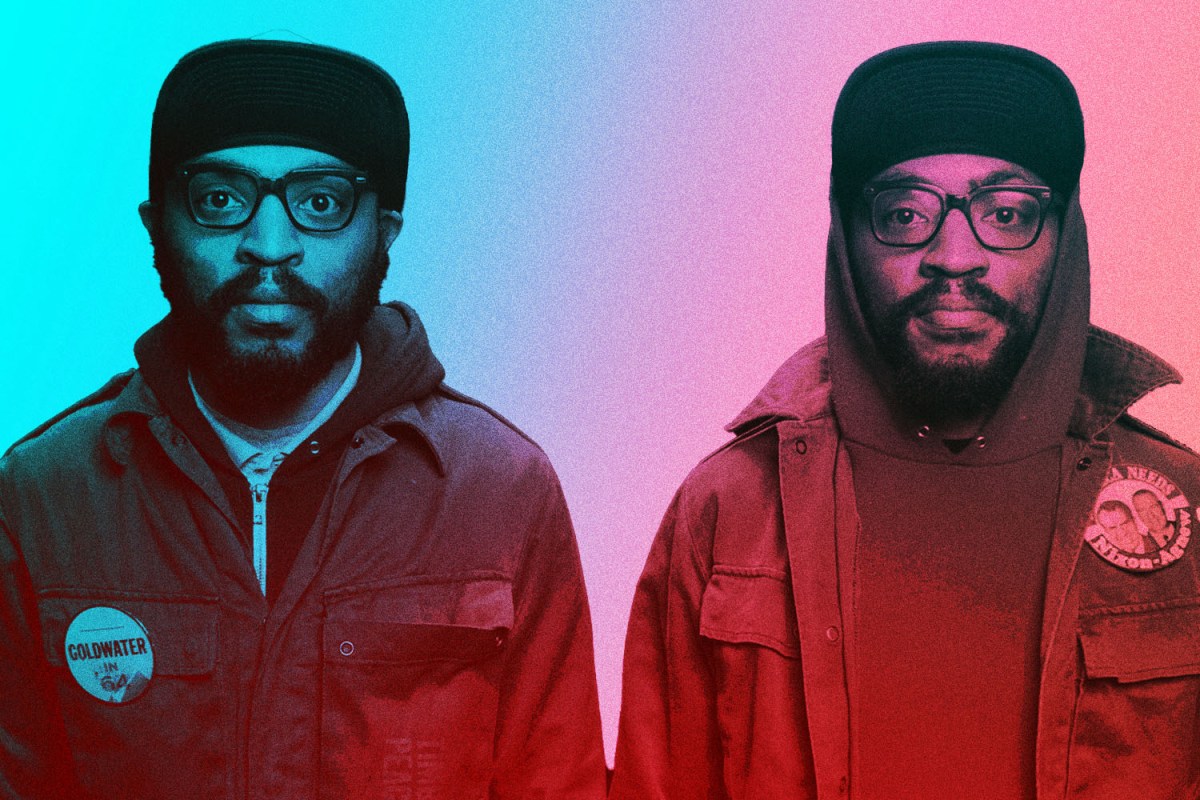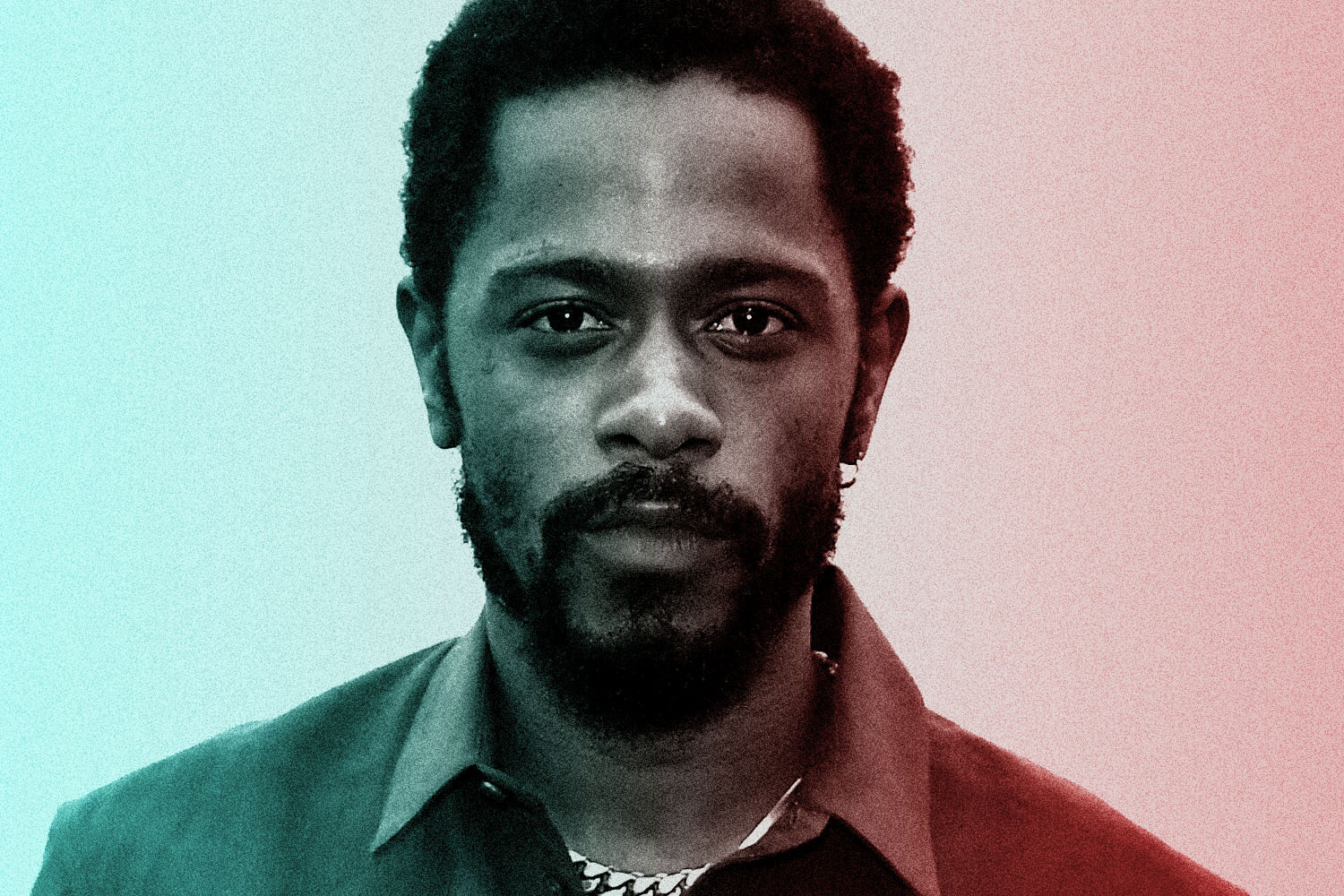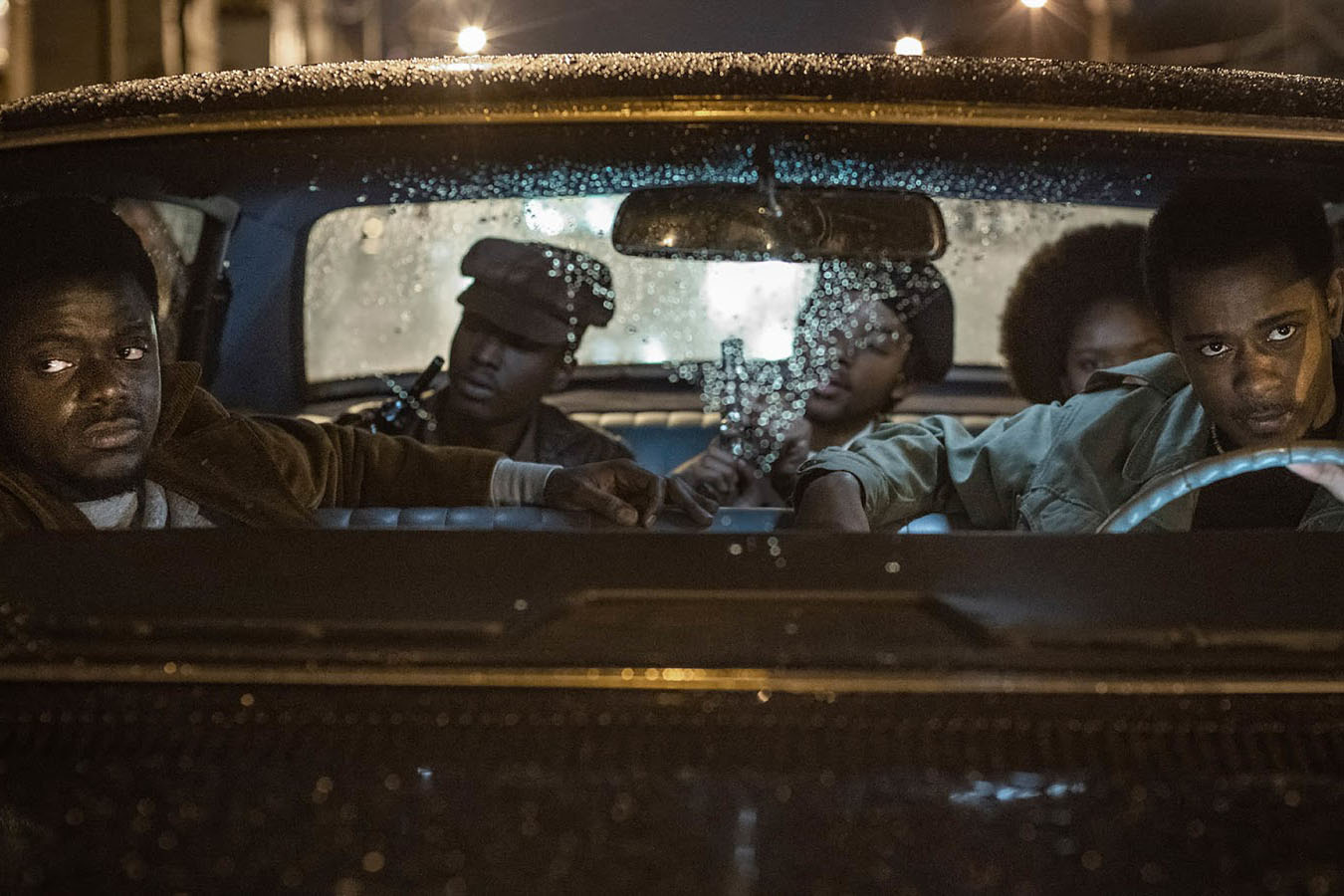A few months before identical twins Kenny and Keith Lucas turned five, their father chauffeured them from their home in Newark, New Jersey, to a movie theater in Manhattan. On the marquee? Arnold Schwarzenegger’s Total Recall.
Featuring exploding heads and three-breasted prostitutes, the very R-rated film was not the boys’ first dalliance with age-inappropriate entertainment. It wouldn’t be their last either but, being boys, they consumed it with glee.
“I think it’s one of the best movies made from that period,” says — I’m pretty sure — Kenny. The three of us are on the phone, and I feel like the victim of the twin gambit from The Parent Trap. “Right then and there, my brother and I fell in love with film.”
If one were to stop Kenny and Keith’s life story at this point and fast forward to today, it might seem natural that the pair would co-write this season’s most compelling dramatic film, Judas and the Black Messiah. However, the road toward Oscar buzz for The Lucas Bros. — best known as a stand-up comedy duo who don’t hide their stoner-hood — has been a winding one. And though, to many, the idea that they’d be the ones to conceptualize this movie feels offbeat, the reality is it may have been an inevitability.
Kenny and Keith Lucas were born on September 13, 1985 in Newark, a city described by the New York Times two years earlier as “the poorest of the nation’s big cities” with a “runaway crime rate.” But Keith — I’m certain this time — says their mother, Mary Lucas, “did a good job making sure we had a good childhood.”
Cutting in over the phone — something the twins do to each other often during my call with them — Kenny asserts: “We saw some shit, though.”
“I’m not saying we didn’t see any shit,” says Keith, returning the volley. “It was crazy, it was wild, but that wasn’t all of our childhood.”
Kenny, conceding the point, approves this version of the remembrance with a rapid-fire “Right, right, right.”
The “shit” they saw, some of it chronicled by them in a 2020 essay for Vulture and a PBS NewsHour segment from 2018, included drugland deals and killings. About two years after that trek to see Total Recall, their father also went to prison on drug-related charges. This and the plenty more stressors that come with impoverished, inner-city life, and just being Black in America, helped fuel The Lucas Bros.’ struggles with PTSD and substance abuse. They’ve also battled with anxiety and depression, resulting in two suicide attempts — one for each, which, as they note with a twist of dark humor in the Vulture piece, was a reflection of the “balance” between them.
Still, Keith says when the pair were young they played hide-and-go-seek with friends, swam in public swimming pools at parks, went to cookouts, attended church and reaped all the benefits of the “strong community” that surrounded them. He adds that he and his brother were immersed in arts and culture, which is “basic to the identity of what it means to be a Newarker.”
“Newark has a reputation that is misunderstood by people who’ve never been here, but when you get here, the people are beautiful, the culture is beautiful,” says Lauren LeBeaux Craig, director of marketing and artistic initiatives at Newark Arts, an organization dedicated to ensuring the local arts there continue to thrive. “Newark has always had a very rich arts and culture community and I think it comes from it being a majority Black and brown city — that history of the drumbeat, there’s something about it that just resonates with everybody that lives here.”
Actor Michael B. Jordan is among the city’s many artist natives. Writer Amiri Baraka hailed from the city, too, as does his son, current Newark mayor and staunch advocate for the arts Ras Baraka. But Newark boasts a long list of musician sons and daughters as well. There’s rappers Queen Latifah and Redman, as well as Wyclef Jean and the jazz vocalist and pianist Sarah Vaughan.
On top of music, and before they became perhaps Newark’s most diminutive film fanatics, the twins were also exposed to copious amounts of comedy. In a stream of collective consciousness, the twins talk over each other and tell me: “We watched SNL with our mom; we watched In Living Color, Martin; Chris Rock was huge; Richard Pryor, Eddie Murphy, Wanda Sykes, Red Fox, Whoopi Goldberg — all of the legends in Black comedy, we were sort of infused with that at a very young age.”
Throughout those formative years, they also say their mother made “every sacrifice” to give them an opportunity to succeed. She worked three jobs and endured “bad, terrible relationships,” Kenny says. She also moved them to High Point, North Carolina, shortly after their father was incarcerated, with hopes that the twins would receive a better education.
That turned out to be the case — but, initially, for only one of them. Keith says Kenny was the more studious Lucas brother as a kid and was placed in gifted learning classes. While he earned straight As, Keith struggled, both in terms of grades and with his behavior, saying he “became a rabble-rouser” after his father went to prison. “He was always very smart, though,” Kenny says, coming to his twin’s rescue. Driven in part by Kenny’s academic achievements, Keith decided in high school to catch up to him. By the time they attended undergrad together, back in New Jersey, they were both “basically” A students, they say, majoring in philosophy.
This development sets up perhaps the most profound zig zag in The Lucas Bros.’ tale. Though they both went on to law school, they parted ways, with Keith shipping out to Duke University and Kenny attending New York University. Kenny wished to stay closer to home and his girlfriend at the time, both of which were in New Jersey. Just steps from his NYU dorm, however, was the renowned comedy club The Comedy Cellar. There, and at other stand-up enclaves in the area, he saw established and emerging comedy legends perform, including Bill Burr, Patrice O’Neal, Louis CK, Chris Rock and Aziz Ansari.
“I would see these comedians [and] it seemed like they had the best lives,” Kenny says. “I was like, ‘I wanna do what they’re doing.’”
His disenchantment with law school didn’t help matters, and as the pair neared graduation, Kenny says, “I used all the powers of persuasion I learned in law school and in philosophy” to compel Keith to drop out along with him. They were going to pursue a career in stand-up comedy. “I convinced him that it was a morally courageous thing to do,” Kenny says, “and that we have more to give as artists than we did as lawyers.”
Their near-identical DNA is a gimmick they play up on comedy stages by appearing as a unit, “The Lucas Bros.,” while eschewing individual introductions. They believed this would help them stand out among the throngs of performers looking for a break, and the approach worked — eventually.
In 2017, Netflix streamed The Lucas Bros.’ first stand-up special, On Drugs. The duo hadn’t yet been performing for a decade, and to earn a special so relatively fast by comedy standards was a true achievement. But for years leading up to their notoriety, they toiled financially. Remember, those were only partial scholarships to law school; loans had to be paid back, and at one point they were evicted from a Brooklyn apartment. They moved back in with their mother in New Jersey, who then got them a job, which they were subsequently fired from.
“There were so many moments I wanted to give up,” says … well, I think Keith, though it kinda doesn’t matter in this instance. He thought to himself at the time: “What the fuck am I doing?” and “I was at a top law school, on the brink of making six figures, and I pretty much threw it all away for this?”
But Kenny and Keith relentlessly toured the country together, building a following and perfecting their act, which is powered by dichotomy — ironic, given their oft-indistinguishable appearance. They discuss their love of weed with an expected laid-back disposition; however, they also deftly inject high-minded (not that kind of “high”) concepts into their discourse, like history and politics, frequently with references to events and figures that predate their existence.
The Lucas Bros. have also developed and starred in their own animated series, Lucas Bros. Moving Co., and appeared in the film 22 Jump Street, among other big- and small-screen work. But after Kenny and Keith learned about the 1969 assassination of Black Panther leader Fred Hampton — which was carried out by the FBI in conjunction with Chicago police — during an undergrad African American Studies class, they began circling around their most ambitious project to date: Judas and the Black Messiah.
The feature film serves as a profile of the fiery orator that was Hampton and the FBI informant, William O’Neal, whose undercover work led to his murder. The Lucas Bros., who earned a “Story by” credit and are co-producers of the film, crafted multiple outlines of their concept for the biopic, before director Shaka King and writer Will Berson finalized the screenplay. To sell King on the idea, the Lucases told the filmmaker they envisioned the final product sporting elements of the Martin Scorsese movie The Departed and the Bernardo Bertolucci drama The Conformist. In both of those films — each of which earned Oscar nominations, with Scorsese’s winning four, including Best Picture — the central, undercover agent characters deal with questions about their identities. Given that William O’Neal was a Black American during one of the most crucial periods in the struggle for equal rights and sold out one of the movement’s most promising young leaders, he (and by proxy, his character) face similar concerns.
Who better to write about identity than a pair of twins who actively strip themselves of their individuality in their professional lives? Considering The Lucas Bros.’ heritage, their ravenous consumption of history as well as cinema and their writing skills that come with being stand-up comics, there were perhaps no two more perfect people — and an Academy Award might be in their future.
Just prior to our call, The Lucas Bros. learned of their nomination for a Writers Guild of America Award in the Best Original Screenplay category for Judas and the Black Messiah. Last year, Han Jin Won and Bong Joon Ho took home the WGA award for Best Original Screenplay and went on to win the Oscar in the same category. The film they wrote, Parasite, also won the Academy Award for Best Picture.
But during our chat, the twins were staying in the moment — often a difficult thing for trauma survivors such as themselves to do. The Oscars didn’t come up. Instead, they marveled at the impact their film is having on viewers — with people telling them they’ve sought more information on Fred Hampton and the Civil Rights fight — and reflected upon the twists and turns of their life together, side-by-side, since conception.
“I’m just fortunate enough to be in this situation right now,” says Kenny, though, truly, it could be Keith — whoever it was didn’t announce himself before beginning to speak. “It’s fuckin’ nuts.”
This article appeared in an InsideHook newsletter. Sign up for free to get more on travel, wellness, style, drinking, and culture.























